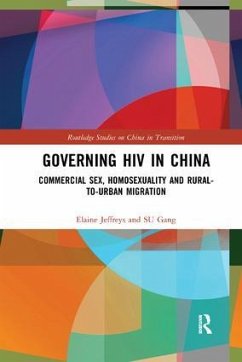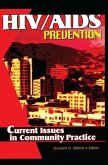HIV and AIDS have long been problematized in the People's Republic of China as objects of governance in political frameworks and institutions. The state's attitudes towards health programs have, nevertheless, changed significantly during the 21st century. Pilot programs at the beginning of the century, which focused on underground sex workers, have now developed into the roll-out of a nationwide program, with supportive legislation and broadcast media publicity. This book therefore examines China's evolving AIDS response, providing an up to date investigation into the positions and practices of the state. It explains the origins, rationales and implementation of initiatives focused on female sex workers and explores the extension of such initiatives to include other populations identified as key to ending the AIDS epidemic, especially homosexual men and rural-to-urban migrant labourers. Ultimately, through an analysis of the different approaches to the governance of commercial sex and sexual health, Governing HIV in China concludes by considering the challenges raised by China's commitment to the United Nations' vision of ending AIDS as a global health threat by 2030. This book will be useful for students and scholars of Social Policy, Public Health Policy and Chinese Studies.
Hinweis: Dieser Artikel kann nur an eine deutsche Lieferadresse ausgeliefert werden.
Hinweis: Dieser Artikel kann nur an eine deutsche Lieferadresse ausgeliefert werden.








